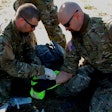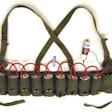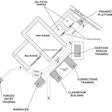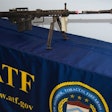I can think of no more challenging, micro-scrutinized, emotional, or controversial law enforcement incident than the use of deadly force. Increasingly, officers nationwide are forced to defend themselves against departmental, civil, and even criminal charges. Very clearly this has become a very acute situation facing American law enforcement.
To understand the gravity of controversy involving police actions, we need look no farther than the 1992 Los Angeles Riot, the deadliest riot in modern U.S. history, sparked by the acquittals of four LAPD officers. Or the more recent series of violent protests and clashes with police in Oakland, Calif., stemming from the January 1 controversial BART Police shooting of an unarmed man.
The recent back-to-back murders of seven police officers in Oakland and Pittsburgh sent shockwaves not only throughout both departments and communities, but also throughout America's law enforcement community—and throughout the entire nation.
After the dust from such incidents settles, the respective departments and communities continue to feel the aftershocks long afterward. Such is the case in the California cities of Oakland and Eureka.
Oakland (Calif.) PD
As of this writing, Oakland PD SWAT continues to be in "stand down" mode. OPD SWAT took a heavy-duty hit, with two sergeants (team leaders) killed and a third wounded. OPD needs time to regroup and train new team leaders, which is currently underway. During the interim, Alameda County Sheriff SWAT is handling Oakland SWAT duties.
On May 4, a state lab confirmed via DNA that the OPD shooter had raped a 12-year-old girl on Feb. 5, and had raped two women only hours before his deadly rampage on Mar. 21. The Oakland Police Officers Association president had a message for the suspect's supporters: "Congratulations for supporting a monster."
Recent news reports reveal new details about the initial shooting of the two motor officers. The motor sergeant noticed something wrong with the suspect's driver's license. By this time, the second motor officer had arrived as backup, and both officers approached the back of the suspect's car—when he reportedly leaned out his window and shot the sergeant, then shot the second officer as he sought cover. The suspect then shot both downed officers point blank and ran off.
On May 13, news reports stated the Oakland PD SWAT team, in a "no confidence" vote over the SWAT captain's leadership abilities, asked that he be reassigned. The SWAT captain asked to be relieved of his SWAT command, but was denied by OPD.
They say time heals all wounds. Let's hope that's true for OPD. What is obvious is how deep OPD's wounds truly are right now—especially in SWAT and Traffic.
Eureka (Calif.) PD
In an April 10, 2008 column, I wrote about the plight of Eureka PD SWAT. The current Spring 2009 issue of "CATO News," the California Association of Tactical Officers publication, features a significant and insightful follow-up article on the Apr. 4, 2006 Eureka PD SWAT callout and shooting.
The article, titled "The Persecution of the Eureka Police Dept.'s SWAT by an Unethical District Attorney," was written by retired LAPD SWAT Sgt. Ron McCarthy. Written in his typical straightforward style, McCarthy's article begins with "The following is an account of what is, in this writer's opinion, a travesty of justice and an example of what a fraudulent or totally inadequate DS's investigation can produce."
The first half of Ron McCarthy's article chronicles the events of the callout and shooting, and the harrowing aftermath culminating in the officers' indictments 18 months later. That's where my April 10, 2008 column left off.
The Fresno (Calif.) PD chief and president of the California Police Chiefs Association summed up the belief of most in law enforcement, saying it was "unheard of in law enforcement for a chief and a lieutenant to be indicted for a decision they made at a SWAT call."
The second half of McCarthy's article reads like a "how to" manual for mounting a successful defense against untrue allegations against police. It's the amazing story of the considerable and tireless combined efforts by PORAC defense attorneys, investigators, and experts, including Mike Hillman, then deputy chief of LAPD. All the experts agreed the EPD SWAT response was textbook perfect. Defense investigators were able to disprove the DA's account of events.
Then, on August 26, 2008, in the courtroom packed with law enforcement officers, a Humboldt County Superior Court Judge dismissed all charges against the two officers. Ron McCarthy closes his article with these profound words: "This is a lesson to all officers in the State of California and elsewhere. They must always use the best training, tactics, and techniques available to them and follow up with a very professional investigation and public disclosure."
Despite its incredible courtroom victory, EPD has paid a heavy price. The chief retired, and the SWAT team was dissolved. Yet, EPD is already bouncing back with several EPD officers assigned to the regional SWAT team.
"Always do the right thing," Ron McCarthy's wise admonition, has never proven truer than in Eureka, Calif., and is a lesson for all of us to learn and live by.
















